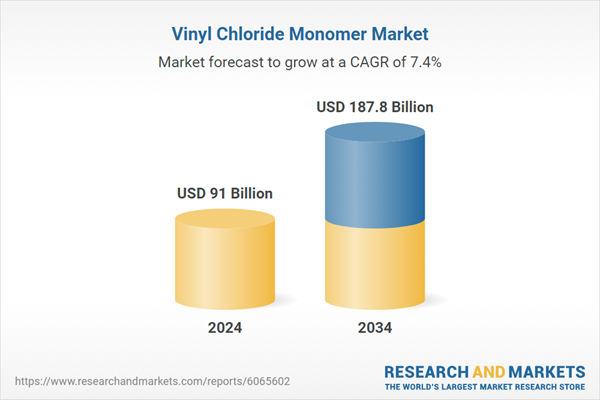The rising demand for polyvinyl chloride (PVC), a highly durable and versatile material, remains one of the key drivers of this market growth. As a primary raw material for PVC production, vinyl chloride monomer (VCM) is witnessing surging consumption across a wide range of industries. With rapid urbanization, industrial development, and a growing emphasis on modern infrastructure, particularly in emerging economies, VCM-based products continue to play a crucial role in supporting construction, automotive, healthcare, and packaging industries.
The construction boom, fueled by an urgent need for affordable and durable building materials, has significantly increased the consumption of PVC in pipes, window frames, profiles, and flooring. VCM is also benefitting from ongoing technological advancements in production processes that have improved overall efficiency, reduced emissions, and lowered production costs, enabling manufacturers to meet escalating global demand while complying with environmental standards. As industries focus more on sustainability and green construction, PVC’s role in energy-efficient buildings, combined with innovations in recyclable and eco-friendly PVC formulations, is further shaping the growth trajectory of the global vinyl chloride monomer market.
The market, when analyzed by product type, is primarily segmented into PVC copolymers, resins, and chlorinated solvents. Among these, PVC holds the largest share and continues to dominate the market due to its widespread application in industries modernizing their operations to meet current and future demands. Industries such as construction, healthcare, automotive, and packaging increasingly prefer PVC because of its unmatched chemical resistance, ease of processing, cost efficiency, and longevity. The material’s suitability for creating high-strength, low-maintenance products, including pipes, windows, flooring, and medical devices, ensures that the demand for VCM remains strong. With ongoing improvements in recycling processes and a growing shift toward environmentally friendly PVC formulations, manufacturers are better equipped to meet both regulatory requirements and consumer preferences for sustainable products.
By application, the vinyl chloride monomer market spans across construction, healthcare, agriculture, electrical and electronics, and automotive industries. Construction alone accounted for a 60.9% market share in 2024 and is forecasted to grow at a CAGR of 7.5% through 2034. The construction industry’s reliance on PVC for producing durable, low-cost, and low-maintenance materials such as pipes, doors, windows, and flooring continues to bolster market growth. The integration of PVC in energy-efficient building solutions, aligned with sustainable construction practices, is fueling further adoption of VCM-based products globally.
The U.S. Vinyl Chloride Monomer Market reached USD 10.9 billion in 2024, driven by robust demand for PVC in construction applications like pipes, window frames, and flooring. With a reliable and cost-effective ethylene supply, largely due to advancements in shale gas extraction, U.S. manufacturers are well-positioned to meet rising domestic and international demand. Additionally, stringent safety and environmental regulations have increased confidence in PVC-based solutions, while updated building codes emphasizing sustainability and energy efficiency continue to drive market growth across the country.
Comprehensive Market Analysis and Forecast
- Industry trends, key growth drivers, challenges, future opportunities, and regulatory landscape
- Competitive landscape with Porter’s Five Forces and PESTEL analysis
- Market size, segmentation, and regional forecasts
- In-depth company profiles, business strategies, financial insights, and SWOT analysis
This product will be delivered within 2-4 business days.
Table of Contents
Companies Mentioned
The companies profiled in this Vinyl Chloride Monomer market report include:- Agc Chemicals
- Basf
- Bayer
- Dow Dupont
- Formosa Plastics Group
- Ineos Styrolution
- Jubail Chevron Phillips
- LG Chem
- Lyondellbasell Industries
- Nova Chemical
- Occidental Chemical Corporation
- Qatar Vinyl Company Petroquimica Innovay
- Reliance Industries
- Westlake Corporation
Table Information
| Report Attribute | Details |
|---|---|
| No. of Pages | 263 |
| Published | March 2025 |
| Forecast Period | 2024 - 2034 |
| Estimated Market Value ( USD | $ 91 Billion |
| Forecasted Market Value ( USD | $ 187.8 Billion |
| Compound Annual Growth Rate | 7.4% |
| Regions Covered | Global |
| No. of Companies Mentioned | 15 |









